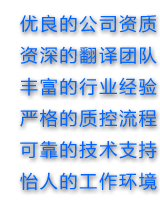你知道“福”字为何倒挂吗?
The government invests a lot of effort and money in the annual Speak Mandarin campaign to motivate the Chinese to learn their mother tongue. In recent years, the Promote Mandarin Council has expanded the campaign by encouraging the Chinese to become more knowledgeable about Chinese culture. Nevertheless, learning Chinese culture and passing it on to the next generation is too daunting a task for the yearly campaign to accomplish.
In primary school, pupils are taught by the teacher the proper order of strokes in writing Chinese words. They also learn basic vocabulary and idioms. At the secondary level, the teacher will drill the pupils on forming sentences, grammar, spelling, dictation and essay-writing.
Language is an integral part of culture and the symbol of a race. While stressing proficiency in the language, our policy on mother tongue does not seem to give equal emphasis to the transmission of culture.
At his National Day Rally speech this year, Prime Minister Goh Chok Tong spoke about riding on China's economic growth and urged Chinese pupils to learn the Chinese language and Mandarin seriously. He, however, did not touch on the importance of learning Chinese culture.
Being able to write Chinese words and engage in simple conversation in Mandarin by no means indicates that a person understands Chinese culture. Some learn the Chinese language to pass examinations while others do so to close business deals. They are completely oblivious to the rich culture underlying the language.
Picture this: A businessman having a meal with his Chinese client pauses and plunges the chopsticks into the bowl of rice as he continues to converse.
The businessman who knows Mandarin but not Chinese culture is obviously unaware that his behaviour is considered rather rude in Chinese etiquette. The point is, knowing how to speak Mandarin and write Chinese words may not be enough in breaking into, and investing in, the Chinese market. The culture of a people is more than just language, and the contents and value system it embodies are far more significant.
If we choose to learn Chinese culture through another language, would it be equally effective? While documented cultural material can be translated, some nuances tend to be lost in the process.
Translation may suffer from a lack of accuracy. It may also turn one or two concise words into a long and boring essay.
Take, for instance, the Chinese tradition to paste the word“福”upside-down. Anyone familiar with Chinese culture knows that it means“福到”。 But when the meaning is explained through English translation, it may become a long and tedious sentence such as this: The Chinese character“福”means luck and prosperity, and is commonly pasted inverted on the walls because the Chinese word for inverted is“倒”which has the same pronunciation as the Chinese word for “arrived”。 Thus, this practice is used to symbolise the arrival of luck and prosperity in one's home.“
To have a good grasp of one's culture, learning its language is the best way.
People who know the Chinese language but are ignorant of Chinese culture, or do not know the Chinese language but have translated information on Chinese culture, will not be able to truly understand their own culture. In addition to getting Chinese Singaporeans to learn the Chinese language in earnest, the government should also create an atmosphere and institute an education system that are helpful to the transmission of Chinese culture.
Only when we are well versed in both the Chinese language and culture can we truly appreciate the depth of Chinese culture which dates back a few thousand years.
(The writer is a second year student at the School of Communication and Information, NTU. This article first appeared in The Nanyang Chronicle, NTU's school paper. Translated by Yap Gee Poh)
政府年年都花很多心思和经费,推行讲华语运动,鼓励华人多认识自己的母语。虽然说推广华语理事会在近来也把运动扩展到鼓励华人多认识华族文化,不过文化的传习,似乎不是一年一次的运动所能办到的。
小学上华文课,老师传授的是笔划的正确写法以及一些基本的词汇和成语。升上中学后,华文老师教的还是造句、文法、听写、默写和作文等。
语言是文化的一部分,也是一个种族的主要象征与代表。然而,新加坡的母语教育在强调语言掌握能力的同时,对文化的传承却似乎没有给予相同的重视。
吴作栋总理在国庆群众大会演讲时,以“帮助进军中国市场”为理由,鼓励华族学生学习华文华语,却始终没提及学习华族文化的重要性。
会写华文字和以简单的华语交谈,并不代表一个人了解中华文化。有些人为了考试能及格,生意能谈妥等理由学习华文,却对语言背后蕴藏的文化一概不知。
试想一名商人与中国客户边吃饭边洽谈生意,中途将筷子直插在饭碗里,还不知情地继续滔滔不绝。
这名只懂华语,不懂文化的商人,并不知道这种举动在中华文化里是非常没有礼貌的。要到中国做生意,开拓中国市场,会讲华语和写华文字还不一定足够呢。一个种族的文化背景包涵的不仅是文字,更重要的是其中的内容和价值观。
这么说来,如果我们选择用其他语言学习华族文化,会否达到一样的效果呢?虽然被记载下来的文化资料可以翻译成英文,以方便对华文不熟悉的人参考,但有些意义往往就在翻译的过程中流失了。
经过翻译的文化资料可能少了一份精确性,把原来精炼的一两个字译成冗长乏味的长篇大论。
以华人传统把“福”字倒过来贴来说:对中华文化有认识的人一看便知道是“福到”的意思。但是翻译成英文后,它可能成为这样一个冗长的句子:
The Chinese character“福”means luck and prosperity, and is commonly pasted inverted on the walls because the Chinese word for inverted is“倒”which has the same pronunciation as Chinese word for “arrived”。 Thus, this practice is used to symbolize the arrival of luck and prosperity in one's home.“
要准确并清楚地了解自己的文化,对那门语言有所认识还是最好的方法。
无论是认识华文却对中华文化一概不知,或不懂华文却有英文版的中华文化资料,都无法真正了解自己文化背后的意义。除了强调学好华文以外,政府也应该多提倡与建立有益于母语文化传习的教育制度与气氛。
只有在同时了解与熟悉语言和文化两方面时,生为华人的我们才能真正欣赏中华文化几千年历史的奥妙。













